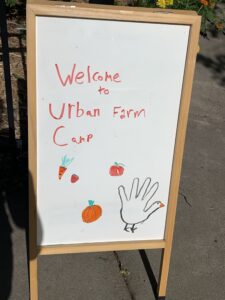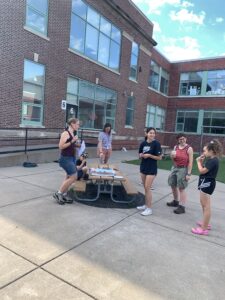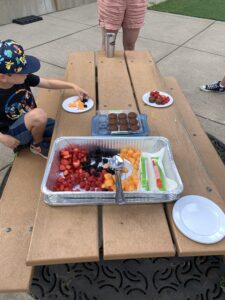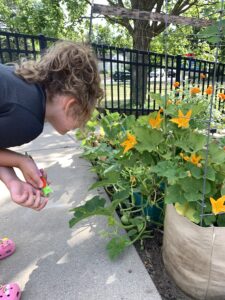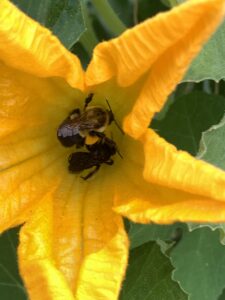Final report for YENC22-184
Project Information
Through schoolyard and community educational food bank gardens plus our new Indoor Growing project, apprentices provide K-12+ youth hands-on experiential skills from soil-to-table-and-back-again through best sustainable ag practices via a permaculture lens.
Apprentices will work alongside staff and program leaders with elementary and middle school students, sharing responsibility and learning leadership, and further exploring the many careers in sustainable ag, thereby growing their career-readiness and understanding of Local Food Systems.
Food produced is used locally for underserved youth and residents, and as community building through meals and garden tours led by apprentices.
-
- Apprentices will support Farm Club and Farm Camp, learning how to teach sustainable ag practices, including what’s, why’s, when’s, where’s and how’s of growing, cooking and preserving foods both from soil and through hydroponics.
- Apprentices will be further introduced to career explorations with deeper understanding through the sharing of that knowledge.
- Apprentices will participate in a Farm Stand selling directly at a pay-what-you-can pricing.
- Apprentices will support our Mobile Tiny Farm programming brought to low-income housing, schools without gardens and public events.
- Apprentices will learn job-readiness skills, earning a living wage while they learn.
Educational & Outreach Activities
Participation Summary:
Farm Camp had its successes and challenges:
The interns and apprentices were happy to learn how to plan, manage and help run the 2 sessions we ran (4 half-days, once in June and once in July; the August Camp had to be cancelled due to lack of staff, however our interns and apprentices continued sharing skills learned through Farm Camp at our weekly free meals through garden tours and garden games with the children attending -which adults enjoyed as well!)
Outreach consisted of recruiting campers from our weekly Nights on the Farm meals at our Elementary Schoolyard Urban Farm as well as through Community Education postings. Camp was offered on a sliding scale (including for free) through Community Ed, and those we recruited through our free weekly meals on the Farm were unpaid participants.
While we didn't engage with as much programming with the Tiny Mobile Farm (the design/build was slower than anticipated due to the pandemic) in the past year, Seeds Feeds and our student partners at the University of St. Thomas finalized the plans for the Tiny Mobile Farm trailer. With the assistance of community partners at Home Depot and Trane, the build is being completed and the trailer is ready for the community. The trailer is equipped to host cooking classes and demonstrations, has room for our hydroponics growing operations, and much more!
Learning Outcomes
Where food comes from
How to grow food
What to do with food
what is Urban agriculture
seed harvesting and crop harvesting
soil composition
raising chickens
pests and beneficials
Bee-houses and bug hotels were created, as well as rock signage painted and seed art made, making seed tape for carrots and planting them, learning about worms and vermiculture, learning how to water plants, performing mason-jar soil-testing, learning about bugs (pests and beneficials) in the garden, creating "Smashed Berry Dressing" for salads from the garden, planting seedlings of corn, counting how many seeds in a pumpkin, and touring the Hydroponics room. They harvested and tasted watermelon, cilantro and other herbs, made butter, lemonade, had scavenger hunts and more! (Please see the Farm Camp Schedule in Media)
A local chicken-keeper came to both sessions bringing 4 chickens and teaching about what chickens need and give. ALL campers, interns, apprentices, staff and parents were thrilled with this part of the program.
Project Outcomes
Although we lost staff just after the 2nd round of Farm Camp, some of our interns and apprentices felt they could take on a third session by themselves, while others felt lost. it was decided to cancel the third session without staff support.
We found many "mistakes" we made in our learning curve. For example, even though we asked for allergies or medical conditions, we found out parents sometimes miss that acknowledgement even though they remember to bring medications, but hand it over to an intern who doesn't know to document or what to do with it! YIKES!
We recommend having personal conversations with each parent to assure knowing that child's temperament, health needs or other information necessary, like "She's a runner so don't let her out of your sight". YIKES!
We also recommend having specific menus for snacks that are careful of any known allergies, and asking before serving if the child is allergic to anything in the dish.
We also recommend having a 1:1 ratio for children under 10 when outdoors in a large space. This can include interns, apprentices or staff or parents to make sure all children are kept safe.
Bringing in the chicken farmer was outstanding. We would have liked to have more opportunity for indoor growing farmers to come visit and teach.
